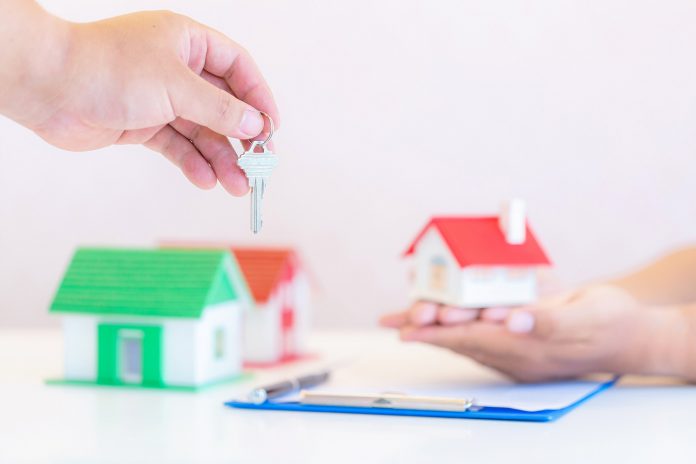When it comes to home loans, one of the popular options that homeowners explore is opting for a reverse mortgage loan. In simple terms, this can be understood as a loan where the borrower borrows against property and receives a payout, either on a monthly or lump sum basis. It is especially popular with those who want to get a home loan after their retirement. However, before signing up for one, you should carefully consider the advantages and shortcomings of a reverse mortgage. Here’s what you need to know:
What is a reverse mortgage loan facility?
If you have a self-occupied or acquired property, you can borrow a loan against the same. This is known as a reverse mortgage loan, and it is a popular option for homeowners above the age of 60. The loan is repaid when the house is sold by you or by your heirs.
Unlike traditional home loans, your credit score or income is not considered by the lender before approving you for the loan. What is also interesting is that instead of paying loan installments upfront, the borrower receives a payout from the lender. Based on the current market value of the property, interest rate, and other processing fees levied, the initial amount is decided, and the money is disbursed to the borrower through periodic installments. There is no immediate liability — the liability to repay the loan only kicks in when the borrower or the heirs sell the house.
Here are the standard eligibility criteria for getting a reverse mortgage loan in India:
- The property should be self-occupied by the borrower. Those who have let out their house on rent are not eligible to borrow under the reverse mortgage facility.
- There should be no claims or proceedings instituted against the property.
- The age of the primary borrower should be 60 and above.
- The property should have a residual life of not less than 20 years.
What are the advantages of a reverse mortgage?
Some potential benefits of opting for a reverse mortgage include:
– You have a safety net for your retirement
Reverse mortgages are an excellent option for retirees who don’t have sufficient liquid cash but occupy a high-value house. Availing a reverse mortgage helps them to liquidate their property without having to sell it and use the cash for their various expenses. Moreover, since reverse mortgage provides homeowners the flexibility to stay in their house while liquefying their assets, the borrower doesn’t have to worry about downsizing or vacating the house.
– You can repay your existing loan
An interesting aspect of taking out a reverse mortgage is that you don’t have to pay off your home loan before applying. You can use the proceeds of the reverse mortgage to pay off the loan. This frees up your existing funds to be used elsewhere.
Your home doesn’t have to be paid off in order to take out a reverse mortgage. In fact, you can use the proceeds of a reverse mortgage to pay off an existing home loan. This frees up money to put toward other expenses.
– You won’t incur a tax liability
As per Indian tax laws, the money received as part of a reverse mortgage is considered to be a loan advance and not income. As a result, it doesn’t count as taxable income. This reduces your overall tax burden.
What are the demerits of a reverse mortgage?
– It is not a free ride
A lot of borrowers sign up for a reverse mortgage, thinking that they won’t have to pay a penny for setting it up. While you don’t incur immediate repayment liability, you still need to pay the other associated costs, such as keeping updated home insurance and paying origination fees to the lender while availing of the facility. While some lenders may give you an option to roll over the costs into the loan amount, it can result in lesser payouts.
– Interest accumulates over time
Since you don’t have to pay installments right away, as is the case with traditional home loans, the interest accumulates. Over time this can become a fairly large amount and add a significant financial burden.
– Your heirs may not inherit as much
The borrower or heirs need to sell the house to repay a reverse mortgage. In other words, to satisfy the debt, you need to part with your house. This can leave your heirs with lesser assets.
– It is not a straightforward financial product
Unlike traditional home loans, there are various caveats attached to a reverse mortgage. One needs to read the fine print carefully before signing on the dotted line. Unless you understand all the terms of the offer and are clear about what your obligations are regarding this loan, it is wiser to stick to traditional loans.
Who is the ideal candidate for a reverse mortgage loan?
The following scenarios make a compelling case for senior citizens to consider opting for a reverse mortgage:
- When they don’t want to carry a liability of making monthly loan payments
- If they cannot afford to pay installments every month
- If they can’t qualify for a traditional home loan due to poor credit score or insufficient cash flow for making repayments
Conclusion
A reverse mortgage, though a useful way for senior citizens to borrow, is not all roses and sunshine. There is ample scope for someone to take advantage of them by making them sign up for a reverse mortgage. There is also a chance of losing the home to foreclosure. This happens when the borrower fails to meet the conditions set by the lender for extending the reverse mortgage. Therefore, being cautious about whether a reverse mortgage is the right choice is the best way to go. Take time to educate yourself and go for it only if you feel completely comfortable.




